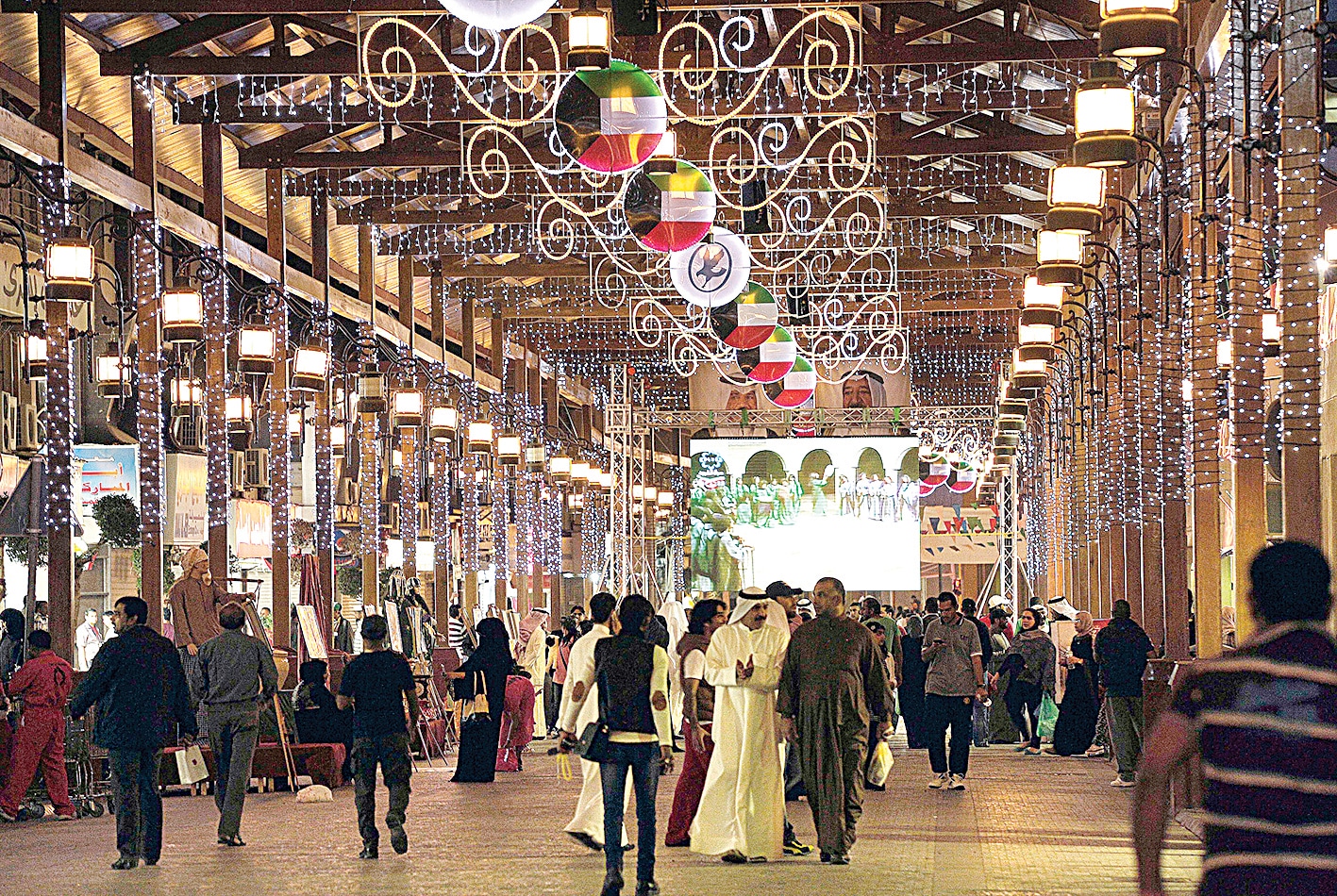By Majd Othman
KUWAIT: Many years ago, malls in Kuwait used to compete with each other to attract shoppers and consumers with catchy prices, offers and sometime gifts, to buy their holiday needs such as clothes, shoes and accessories for all ages. But in the last few years, it has been noticed that prices go up immediately before the holidays at most malls and markets, especially of clothes. Offers and sales also vanish during this time, while prices fall very quickly after the end of the holiday or sometimes at the start of the holiday.
For Eid Al-Fitr, shoppers were forced to spend a lot on their needs to celebrate the holiday. Kuwait Times asked people how they manage their budget during such times — do they prepare a couple of months early or depend on ordering online, especially families.
Rawan Mohammad, an expat, said it is not easy all the time to depend on online shopping, especially as it takes more time to make sure about the sizes, quality and the exact time of receiving the shipment. She said despite the better prices she could find online, several times she has ordered items for herself or her children that turned out to be of poor quality. “Ordering online sometimes depends on luck, especially from retail stores,” she said.
Rawan stressed she tries her best during most holidays to buy clothes and other things very early to manage her budget, sometimes spending half what she would spend during the days before the holiday. “But if there is an attractive item in shops in the local market that can tempt shoppers to buy it even if the price is high, that is another issue!” she quipped.
Alia Khaled, a citizen, said she has noticed that shops in Europe increase the amount of offers and discounts for shoppers during holidays due to high demand, and do not take advantage of customers during these days, from an ethical point of view. She added that during Ramadan or Eid, some shops in Europe have special offers for shoppers that Muslims mostly benefit from, not only on retail products but also consumables, vegetables and food staples.
“The prices in Kuwaiti during holidays are exorbitant, so since many years, I started to buy my clothes from abroad when travelling, and if I am not, I only buy the necessities, not only because of the high prices, but also due to the quality of the materials that differs,” Alia said.
Expat Amir Mohammad from India pointed out that shops and markets offer discounts and sales throughout the year, so his family shops any time of the year, then saves the items until Eid, as prices are overexaggerated during the holidays, even for shoppers who can afford it. Regarding online shopping, he said he does not prefer it. He added he buys most of the family needs from his home country due to the better prices and quality, as well as the designs of clothes that are closer to their taste and traditional styles.
Expat Maha Ebrahim and citizen Hanoof Ali said they start managing their budget a month before Eid to have the opportunity to buy whatever they want before prices rise before the holiday. They both agreed that depending on online shopping is not the best option for high-end holiday clothes, although it is a good option for daily outfits.
Maha said that she spent KD 120 buying an outfit for Eid Al-Fitr, while Hanoof said that it cost her KD 160 to buy accessories and an outfit this Eid. Both stressed that during regular days, they spend 40 to 50 percent less compared to this time of the year.











